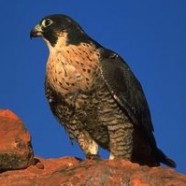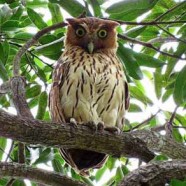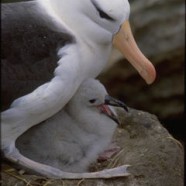“On the Trail” n°5
We are pleased to announce the publication of the 5th edition of « On the Trail », Information and analysis bulletin on animal poaching and smuggling.
1st April – 30th June 2014. 132 pages, 506 events.
Birds, pages 33 to 43
English version (pdf 7,2 Mo):
https://robindesbois.org/wp-content/uploads/ON_THE_TRAIL_5.pdf
Numerous messages have been sent to Robin des Bois from Africa, Asia, Europe and the American continent. They come from Custom officers, CITES delegates, governmental institutions, Non-Governmental Organizations and from the general public. They all testify to the usefulness of “A la Trace” and the English version “On the Trail”, », Information and analysis bulletin on animal poaching and smuggling.
“On the Trail” n°4
Here now the 4th edition of « On the Trail », Information and analysis bulletin on animal poaching and smuggling.
1st January – 31th March 2014.
112 pages, 468 events, 352 information sources.
Birds, pages 30 to 40
All dials are in the red. On the endangered species market prices are soaring. China and the world exotic pet trade are weighing heavily. The red-fronted parrot in Congo smuggled by Blue Helmets are sold for 800 US$ on Internet. Rhino horns reach 100,000 US$/kg, leopard skin more than 30,000 US/$. Mumbai golden youth gets high on cobra venom (180,000 US$/l). Isilo, the elephant who became a symbol of South Africa, is dead. His 2 tusks worth 600,000 US$ have disappeared. Poachers were the first to find his body by spotting the vultures. Suspicion lingers. Daytime rangers become night-time poachers. Prices go wild, the violence does also. Animals, thieves and rangers fall. Traffickers kill each other like traffickers of a drug cartel. Gangs rule, gangrene thrives. This is war. Justice is incoherent. From severe punishment to set an example to a mere bail, justice sometimes goes astray. Traffickers are often very young. Poachers ride BMWs. Killing methods are both modern and archaic.
“On the Trail” n°3
“On the Trail” n°3
(pdf 80 p. 4.5 Mo)
Birds, pages 22 to 29
Robin des Bois is pleased to present to you the third edition of “On the Trail”, a quarterly information and analyses bulletin on animal poaching and smuggling with a special item on the scheduled French illegal ivory crushing tomorrow.
PSG striker strikes falcons
During their stay in Qatar, the PSG (Paris Saint-Germain) French soccer team took part in several events organized by the local tourist agency. That is how Zlatan Ibrahimovic ended up in the audience watching a high flight falconry demonstration and posed for a photo next to a wild falcon. Falconry is a one of Qatar’s pride specialties. This activity is cause of disappearing of several falcon species and other birds of prey.
“On the Trail” n°2
Take a trip of beauty and cruelty in the following 80 pages (pdf. 4Mo), swing through the trees with the supreme pleated gibbon, still at liberty in the wild despite being endangered, get to the bottom of cyanide and of poisoned pineapples, survive the etorphine laced arrows, scheme with furniture dealers looking for ivory, discover the cunning tiger trappers, hunt down blackbucks with Bollywood stars, cruise towards China with 2,000 saiga antelope horns worth 22 million dollars, look into the eyes of a baby chimpanzee in a pathetic plastic bag at a Cameroon market, entrench yourselves in the fate of thousands of birds and animals unwilling migrants forcefully removed from their habitats, float down a river with a mutilated elephant carcass and find out about France’s stance on the future of illegal ivory stockpiles, eat Ganges river dolphin meat, pay homage to rangers and forest guards murdered in the wild by poachers …
Birds, pages 6 to 12
Robin des Bois will Pursue them via “On the Trail”
Today, Robin des Bois, the Paris based NGO, released the 1st edition of “On the Trail”, a quarterly information and analysis bulletin on poaching and smuggling of endangered animals.
206 events of poaching, seizures, arrests and convictions which occurred in Africa, Australia, America, Europe and Asia are listed. This panoramic vision of cruelty and criminal acts on wildlife, between April 1 and June 30, 2013 makes one shiver and deliberate.
In three months the equivalent of 707 elephants, in tusks, were seized. Poaching of Mali elephants is increasing. Robin des Bois recently wrote to the Secretary-General of the United Nations, requesting that UN peacekeeping troops be given strict instructions to protect the subsisting elephant population.
Good news for seabirds
Update of “Today, when you eat tuna, you’re killing an albatross“.
The recommendation on the reducing incidental by-catch of seabirds in long-line fisheries (1) presented by the European Union, Brazil, Uruguay, South Africa and the United Kingdom (on behalf of overseas territories) was unanimously accepted this morning. The recommendation should be confirmed in plenary tomorrow.
The proposal recommends that at least two out of three mitigation measures (1- night setting 2- Bird-scaring lines /tori lines to deter birds from approaching the branch line 3- line weighting) should be applied in the area south of 25° South latitude to reduce seabird by-catches no latter than July 2013, as China had requested more time therefore a further delay of 6 months was accorded. Originally Japan wished that these techniques only be applied to certain “hot spots” which had been identified as problematic.
Today, when you eat tuna, you’re killing an albatross.
Seabirds are victims of oil spills and other pollution. Plastic waste and ghost nets drifting in oceans are also threats along with invasive rodents on the shoreline. They are also victims of tuna fishing.
Urgent mitigation measures need to be taken by ICCAT to reduce by-catch of seabird populations such as albatrosses and petrels in tuna and tuna like species long-line fisheries. Recent worldwide estimates of seabird by-catch by long-line fisheries range between 160,000 and up to 320,000 each year of which a large proportion are albatrosses and petrels. It is estimated that the Japanese tuna fleet kills over 20,000 seabirds per year which seriously impacts albatross populations. According to a document presented to the Scientific Committee it is estimated that around 10,000 seabirds are victims of incidental catch every year within ICCAT’s zone of competence. Albatrosses are surface feeders and wait for the fishermen to throw out the fishing gear. Whereas petrels, such as white-chinned petrels (Procellaria aequinoctialis), plunge into the water depths to steal the bait, they become hooked, dragged along and eventually drown.
Massive falls of the Robin in the North Sea
Over 50 million migrating birds cross the North Sea twice a year. Birds that use stars for navigation purposes are considerably attracted to the illumination of offshore platforms. Over 7 species are particularly affected by this phenomenon in the North Sea. Impact is at its greatest when the night sky is covered by clouds; it leads to a total disorientation of the birds which circle for hours at night in the ocean around this false constellation which is in fact an offshore platform.
According to the report presented by The Netherlands to other Contracting Parties of the OSPAR Convention, one platform could be responsible for the death of 60,000 birds per year.












